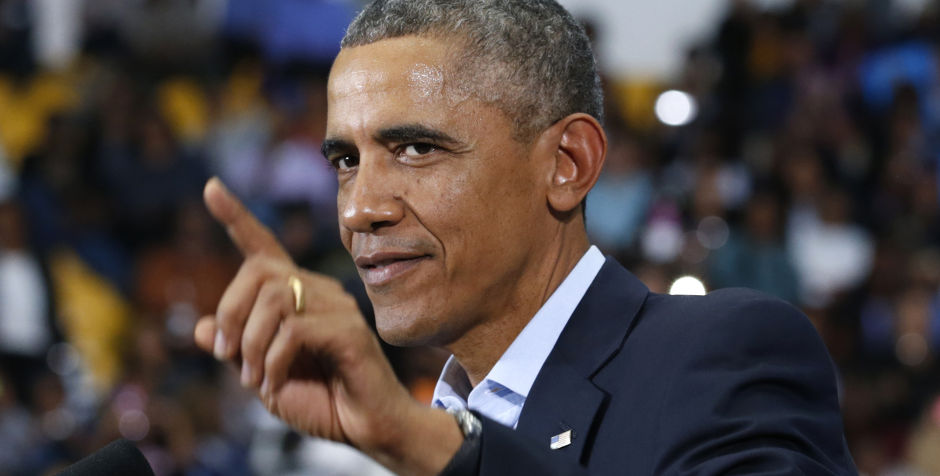ACLJ to Supreme Court: Impatient Presidents Cannot Change the Law
Today, the ACLJ filed an amicus brief at the U.S. Supreme Court fighting back against President Obama’s lawless power-grab.
We filed our brief on behalf of more than 337,400 Americans in support of Texas and 25 other States who have stood up to President Obama’s dangerous Executive overreach on immigration.
We’ve been involved in this case from the beginning, when I testified before Congress on this very issue in 2014, and we’ve filed briefs in both the district court and the Fifth Circuit on behalf of 113 Members of Congress and hundreds of thousands of Americans.
As I’ve explained before, President Obama has tried to make this case about immigration, and it involves immigration, to be sure. But it is about so much more than that. It’s about the Constitution, the Separation of Powers, and the President’s Article II, Section 3 duty to take care that the law be faithfully executed. That is precisely what I said in my congressional testimony, what I’ve expressed to the public, and what we argued in the courts below.
The lower courts agreed with our ultimate argument – that the President’s abuse of power must be blocked - though did not reach the constitutional issue. But the Supreme Court specifically directed briefing on the constitutional issue we’ve advanced all along. Today, we answered the call, arguing in our brief:
“The Constitution, in distributing the powers of government, creates three distinct and separate departments — the legislative, the executive, and the judicial.” O’Donoghue v. United States, 289 U.S. 516, 530 (1933). The objective of separation of powers transcends any one president or any particular issue of the day. “This separation is not merely a matter of convenience or of governmental mechanism. Its object is basic and vital, namely, to preclude a commingling of these essentially different powers of government in the same hands.” Id.The founders intentionally separated these powers among the branches, fearing that a concentration of power in any one branch, being unchecked, would become tyrannical.
Having acknowledged these limitations on numerous occasions, President Obama proudly proclaimed that he “change[d] the law” – by creating a program granting “deferred action” and hence, “lawful presence” to over 4 million unlawfully present immigrants.
President Obama contends the States aren’t “injured” by his program and therefore, do not have “standing” to challenge the program in court. But the lower court found that his program would cause the States to incur increased costs for services and benefits, like driver licenses, healthcare and education, because it would increase the number of people who demand them. And as we explained in our brief, this gives the States “standing” to challenge the program in court.
Besides granting “lawful presence,” this program would also provide its beneficiaries access to federal benefits like Social Security numbers and work permits. Only Congress has this authority, and Congress has decided not to grant these benefits to the class of people identified in the program.
Unable to persuasively point to a specific statutory grant of authority, President Obama insists he has the authority to change the law through “prosecutorial discretion.” But as we explained in our brief, historically (and legally), prosecutorial discretion only applies to individual cases – not sweeping, class-based decisions not to enforce the law against whole categories of people. Congress has certainly vested the Executive Branch with discretion in certain areas of immigration law, but it did not do so here.
In our brief, we also pointed out how lawless Executive policies like the one challenged here actually hurt, rather than help, immigrants. By circumventing Congress’s specific laws meant to deter illegal immigration, lawless programs like this one actually encourage it – with devastating humanitarian consequences.
Over the past few decades, Congress has acted to eliminate the incentives for illegal immigration by restricting access to certain benefits. But programs like this one contribute to the perception abroad that those benefits are now accessible. As we explained in our brief:
These migrants, many of which are unaccompanied children, are subjected to grave danger and inhuman conditions. En route, innumerable individuals suffer the perils of abuse, trafficking, and exploitation. . . . And sadly, the abuse and trafficking continue even after they’ve crossed the border.
Our brief addresses the grim plight of illegal immigrants in greater detail. It is nothing short of a humanitarian crisis. As I’ve said many times, we have a moral obligation to fix our broken immigration system. I am the grandson of an immigrant. I know this as well as anyone. But lawless Executive action is not the answer – for our nation or those wishing to come here.
Amazingly, President Obama’s lawyers not only insist that the States can’t challenge the program, but also that the program cannot be challenged or reviewed by courts at all, and that they have the nebulous discretionary power to do what they did – and more.
But the States have not backed down, and we are standing right there with them. The Constitution is clear: Impatient presidents don’t get to change the law. Our position from the beginning has also been clear: President Obama is not a king.
This Executive overreach is both unlawful and unconstitutional. We are urging the Supreme Court to put an end to this impermissible overreach, which can only be described as a troubling hallmark of this President.
The trial court was absolutely correct in finding that President Obama “is not just rewriting the laws, he is creating them from scratch.” The Supreme Court has an important opportunity to protect the Constitution and rein in an out-of-control president.
Oral arguments in the case are set at the Supreme Court for April 18, 2016, and the Court could render its decision this summer.
You can still join our Committee to Defend the Separation of Powers by signing our Petition. Make your voice heard today. Stand with us as we defend the Constitution.
